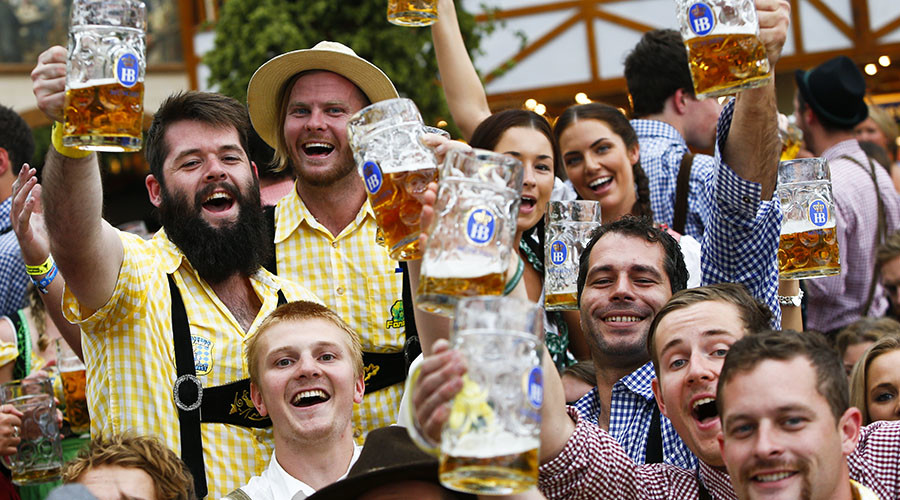Munich to spend extra €2.2m on Oktoberfest security in the wake of Brussels, Istanbul attacks

Welcome everyone to a Blog devoted to the greatest Holliday ever “Oktoberfest” and the Bros who love it. The purpose of The Bros Oktoberfest is to introduce visitors from all over the world to this 16 day long annual festival celebrating that most wonderful of all liquids…Beer!

| Beer Tent | Beer Price 2016 | Beer Price 2015 |
| Armbrustschützen-Festzelt | € 10.55 | € 10.25 |
| Ammer | € 10.60 | € 10.20 |
| Augustiner-Festhalle | € 10.40 | € 10.10 |
| Familienplatzl | € 10.40 | € 10.20 |
| Festzelt Tradition | € 10.40 | € 10.20 |
| Fisch-Bäda | € 10.30 | |
| Fischer-Vroni | € 10.60 | € 10.30 |
| Glöckle Wirt | € 10.50 | € 10.20 |
| Goldener Hahn | € 10.20 | |
| Hacker-Festzelt | € 10.60 | € 10.30 |
| Haxnbraterei | € 10.40 | € 10.10 |
| Heimer Enten- und Hühnerbraterei | € 10.10 | |
| Heinz Wurst- und Hühnerbraterei | € 10.40 | € 10.10 |
| Hofbräuhaus-Festzelt | € 10.60 | € 10.30 |
| Käfer Wies’n Schänke | € 10.60 | € 10.30 |
| Kalbsbraterei | € 10.45 | € 10.20 |
| Löwenbräu-Festzelt | € 10.60 | € 10.35 |
| Marstall | € 10.60 | € 10.30 |
| Münchner Knödelei | € 10.10 | |
| Ochsenbraterei | € 10.45 | € 10.20 |
| Paulaner-Festzelt | € 10.60 | € 10.30 |
| Poschner | € 10.60 | |
| Pschorr-Bräurosl | € 10.60 | € 10.30 |
| Schottenhammel-Festhalle | € 10.55 | € 10.25 |
| Schützen-Festzelt | € 10.60 | € 10.30 |
| Vinzenz Murr Metzgerstubn | € 10.60 | € 10.00 |
| Wildmoser’s Hühner- und Entenbraterei | € 10.50 | € 10.20 |
| Wildstubn | € 10.65 | € 10.35 |
| Wirtshaus Schichtl | € 10.40 | € 10.10 |
| Zum Stiftl | € 10.60 | € 10.30 |
| Zur Bratwurst | € 10.70 | € 10.40 |